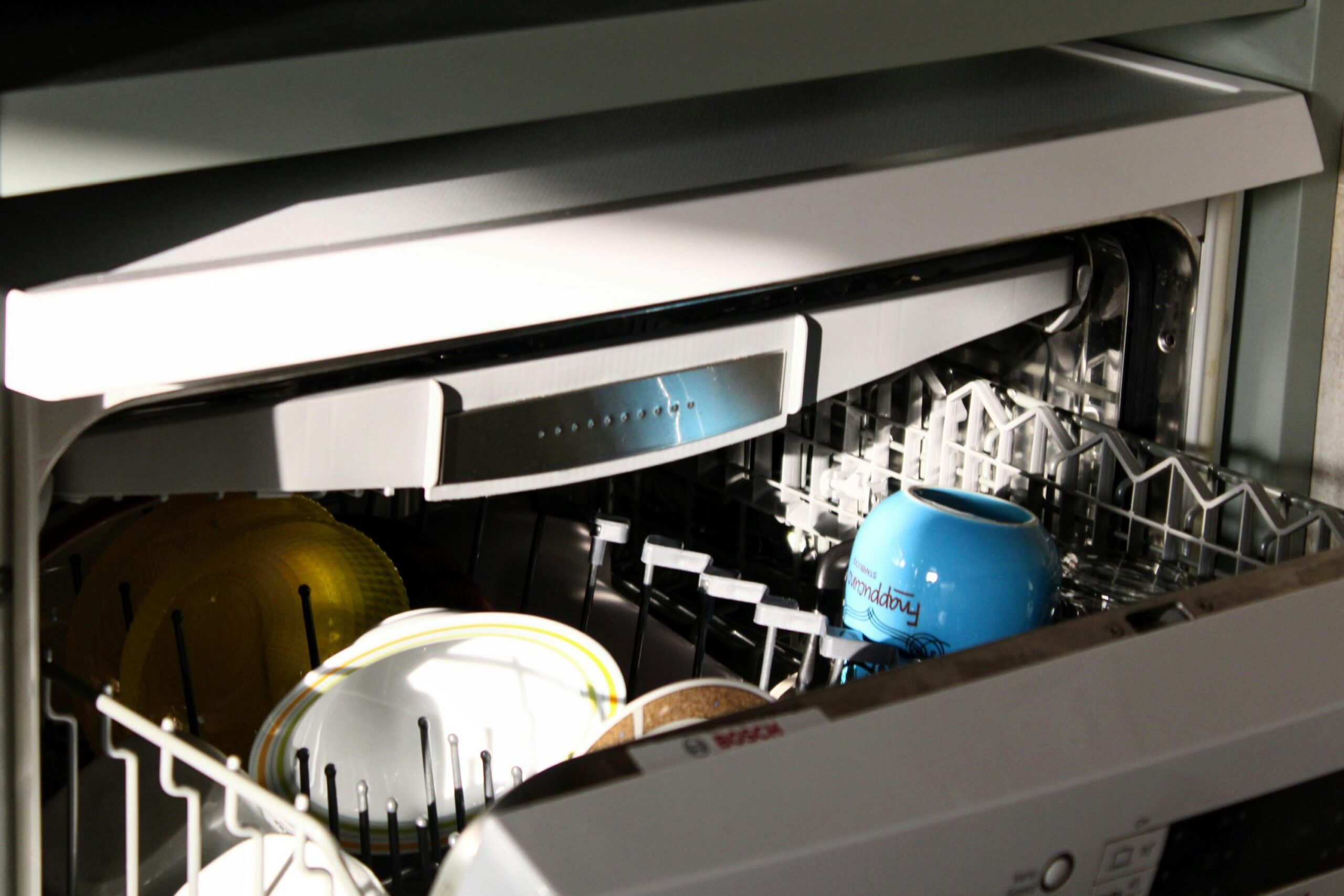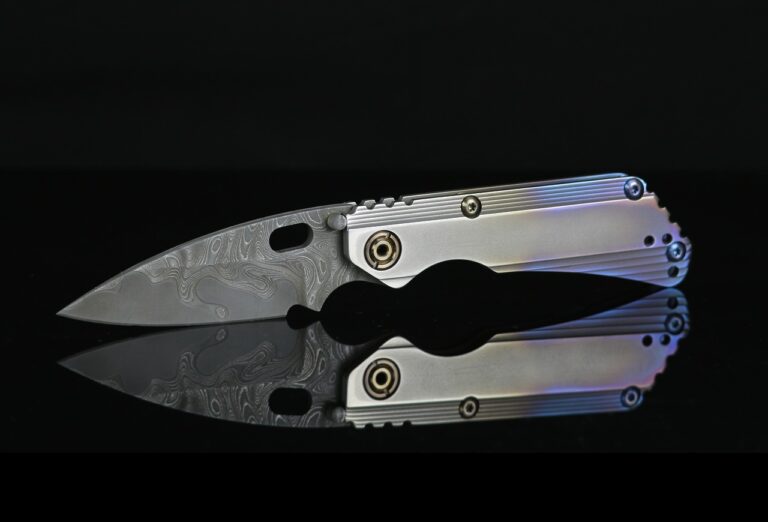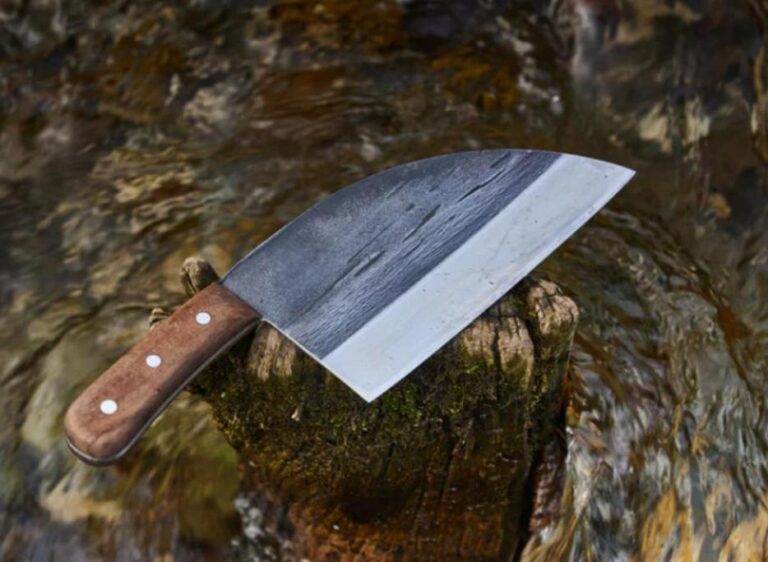When it comes to kitchen knife maintenance, one question dominates cooking forums and professional kitchens alike: does dishwasher dull knives? The short answer is yes – dishwashers can significantly dull your knives and cause long-term damage. But understanding why this happens and how to properly care for your blades will help you maintain sharp, reliable knives for years to come.
Does Dishwasher Dull Knives?
The answer is yes! And how Does the Dishwasher Dull Knives Exactly? The dulling process happens through several mechanisms:
- Micro-abrasion: Dishwasher detergent particles act like sandpaper, gradually wearing away the sharp edge through repeated exposure.
- Thermal stress: Rapid temperature changes cause the metal to expand and contract, creating internal stress that weakens the blade geometry.
- Chemical corrosion: Even stainless steel knives can experience pitting and corrosion from prolonged exposure to dishwasher chemicals, especially if they contain chlorine or other harsh agents.
- Mechanical impact: The combination of water jets, rack movement, and contact with other items creates repeated micro-impacts that deform the cutting edge.
Buy Wholesale Knives and Start Scaling up with Us Today
Contact us and connect with a sales rep to get a free quote.
Why Shouldn’t Knives Be Put in the Dishwasher? 4 Key Reasons
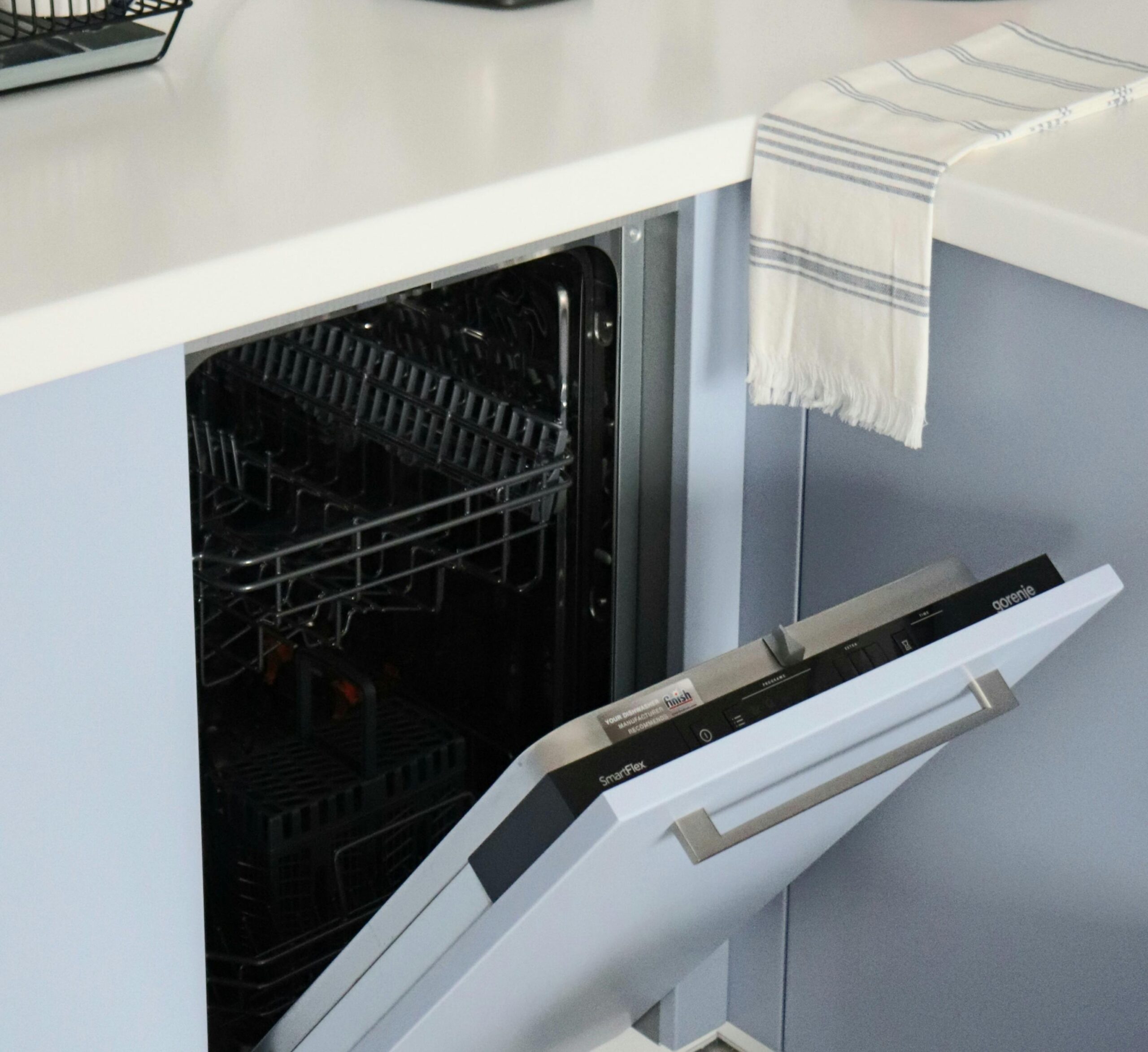
The question “why shouldn’t knives be put in the dishwasher” goes beyond just dullness—dishwashers harm knives in multiple ways that affect performance and safety. Let’s break down the biggest risks:
Reason 1: Mechanical Friction & Impact Damage
Dishwashers are designed to agitate water and spin utensils to remove food—this means your knives aren’t stationary. They bump, scrape, and collide with:
- Heavy pots and pans (which can chip or bend knife blades).
- Ceramic plates or glassware (which leave tiny scratches on the blade’s edge).
- Other utensils (like forks or spatulas) that grind against the knife’s sharp surface.
These micro-impacts might seem small, but they add up. A single dishwasher cycle can create hundreds of tiny nicks in the blade’s edge—turning a sharp knife into one that tears food instead of slicing it.
Reason 2: High Temperatures Soften Blade Steel
Most dishwashers run cycles at 120–170°F (49–77°C)—temperatures high enough to soften the steel in knife blades. Here’s why that matters:
- Knife blades are heat-treated to hold a sharp edge. When exposed to high heat, the steel loses its hardness, making the edge more prone to bending or wearing down.
- After cooling, the softened steel can’t retain a sharp edge as well—so even if you sharpen the knife, it will dull faster than before.
This is especially true for high-carbon steel knives, which are more sensitive to temperature changes than stainless steel.
Buy Wholesale Knives and Start Scaling up with Us Today
Contact us and connect with a sales rep to get a free quote.
Reason 3: Abrasive Detergents Corrode Blades
Dishwasher detergents are formulated to cut through grease and food residue—but they’re also highly abrasive and alkaline. These chemicals:
- Strip away the protective coating (like seasoning on carbon steel knives) that prevents rust and keeps blades smooth.
- Cause “pitting” (tiny holes) on the blade’s surface over time, which traps food and makes the knife harder to clean and sharpen.
- For stainless steel knives, harsh detergents can break down the chromium layer (which prevents rust), leading to discoloration and corrosion.
Reason 4: Moisture Leads to Rust & Bacterial Growth
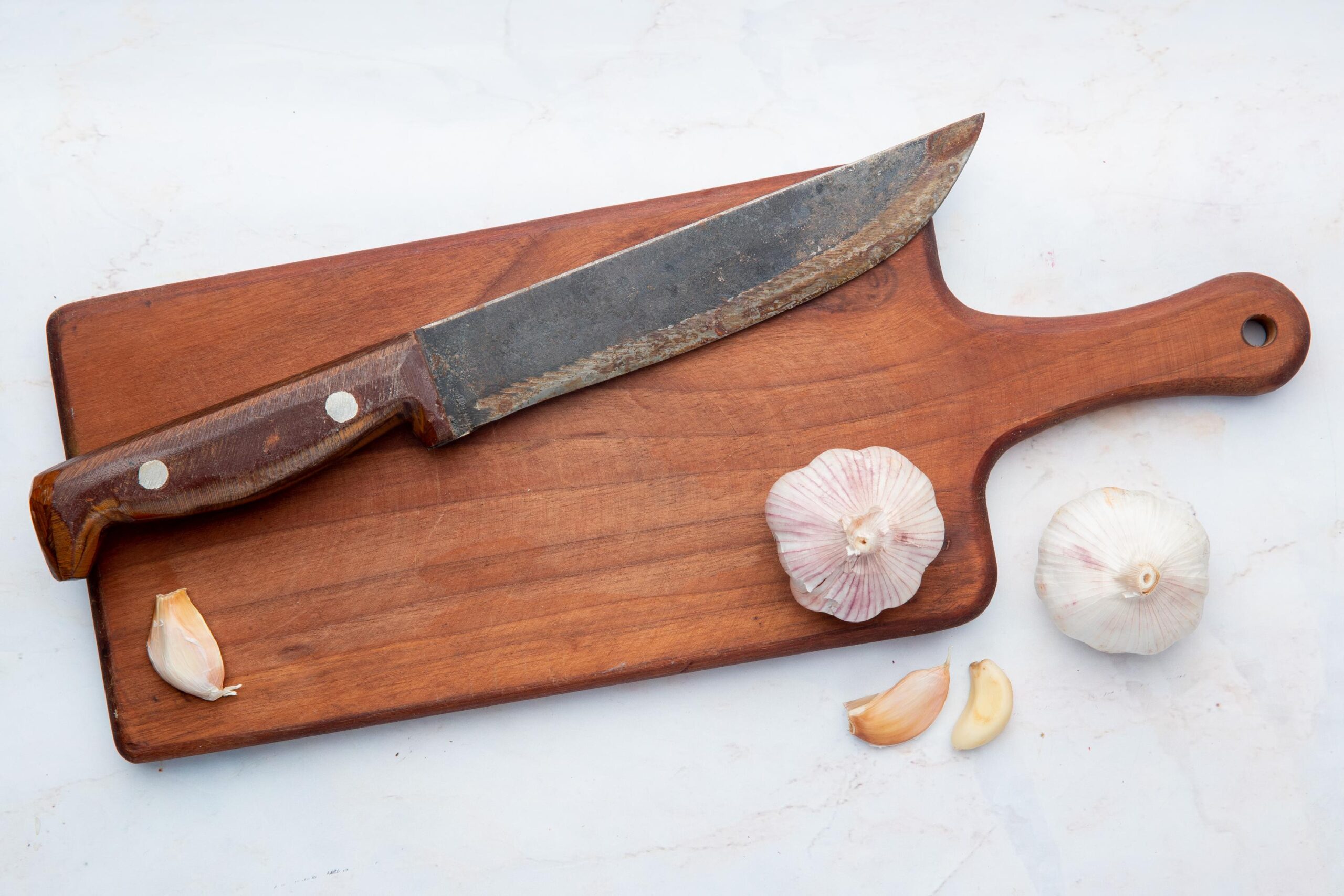
Dishwashers trap moisture—even after the drying cycle. Knives left in a damp dishwasher for hours:
- Are at risk of rust (especially carbon steel or low-quality stainless steel knives). Rust not only ruins the knife’s appearance but also makes the edge uneven and unsafe to use.
- Can harbor bacteria. Food particles stuck in blade scratches + moisture = a breeding ground for germs—something no home cook or commercial kitchen wants.
Buy Wholesale Knives and Start Scaling up with Us Today
Contact us and connect with a sales rep to get a free quote.
How to Keep Knives Sharp: The Right Cleaning & Maintenance Routine
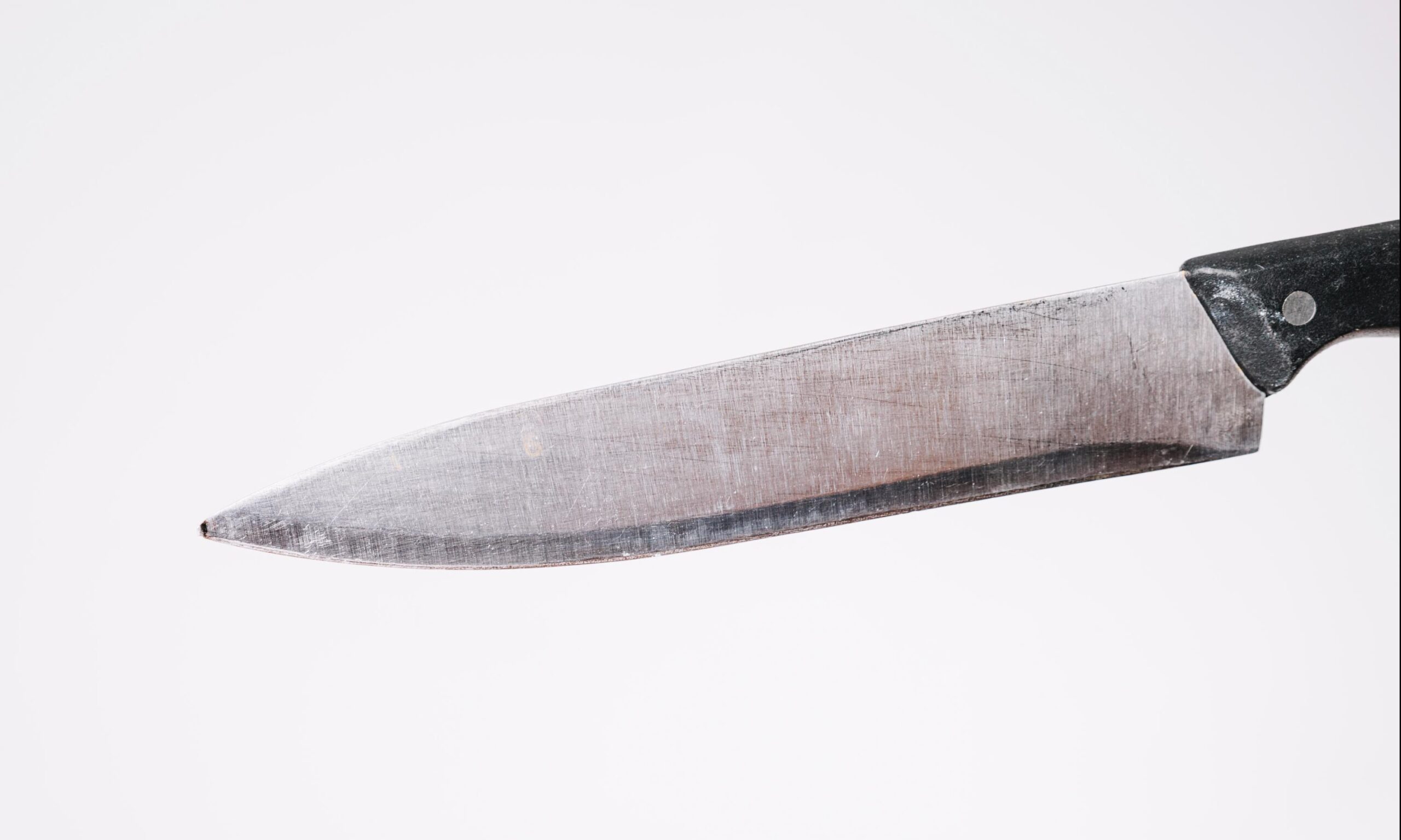
Now that you know “does dishwasher dull knives” (and why you should avoid it), let’s cover the steps to keep your knives sharp, clean, and long-lasting. This routine works for all knife types: stainless steel, carbon steel, ceramic, and even high-end Japanese knives (like Santoku or Gyuto).
Step 1: Wash Knives by Hand Immediately After Use
- Use warm water and a mild dish soap (avoid abrasive scrubbers like steel wool).
- Gently wipe the blade with a soft sponge or cloth—always move the sponge away from the edge to avoid cuts.
- Focus on removing food residue quickly: dried-on food is harder to clean and can scratch the blade if you scrub too hard.
Pro Tip: For tough, stuck-on food (like dried cheese or meat), soak the knife in warm, soapy water for 5–10 minutes—never scrape it with a metal tool.
Step 2: Dry Knives Thoroughly Right Away
- Pat the blade and handle dry with a clean, lint-free towel immediately after washing.
- For wooden-handle knives: Avoid soaking the handle (wood absorbs water and can warp) and dry it extra carefully.
Moisture is the first cause of rust—so don’t leave knives on a wet dish rack overnight!
Buy Wholesale Knives and Start Scaling up with Us Today
Contact us and connect with a sales rep to get a free quote.
Step 3: Store Knives Properly to Avoid Damage
- Use a knife block, magnetic strip, or drawer insert (with soft dividers) to keep blades separate.
- Never toss knives loose in a drawer: They’ll bump against other utensils and dull faster.
- For commercial kitchens: Invest in a knife roll or wall-mounted magnetic strip to keep knives organized and safe.
Step 4: Sharpen Knives Regularly (But Not Too Often)
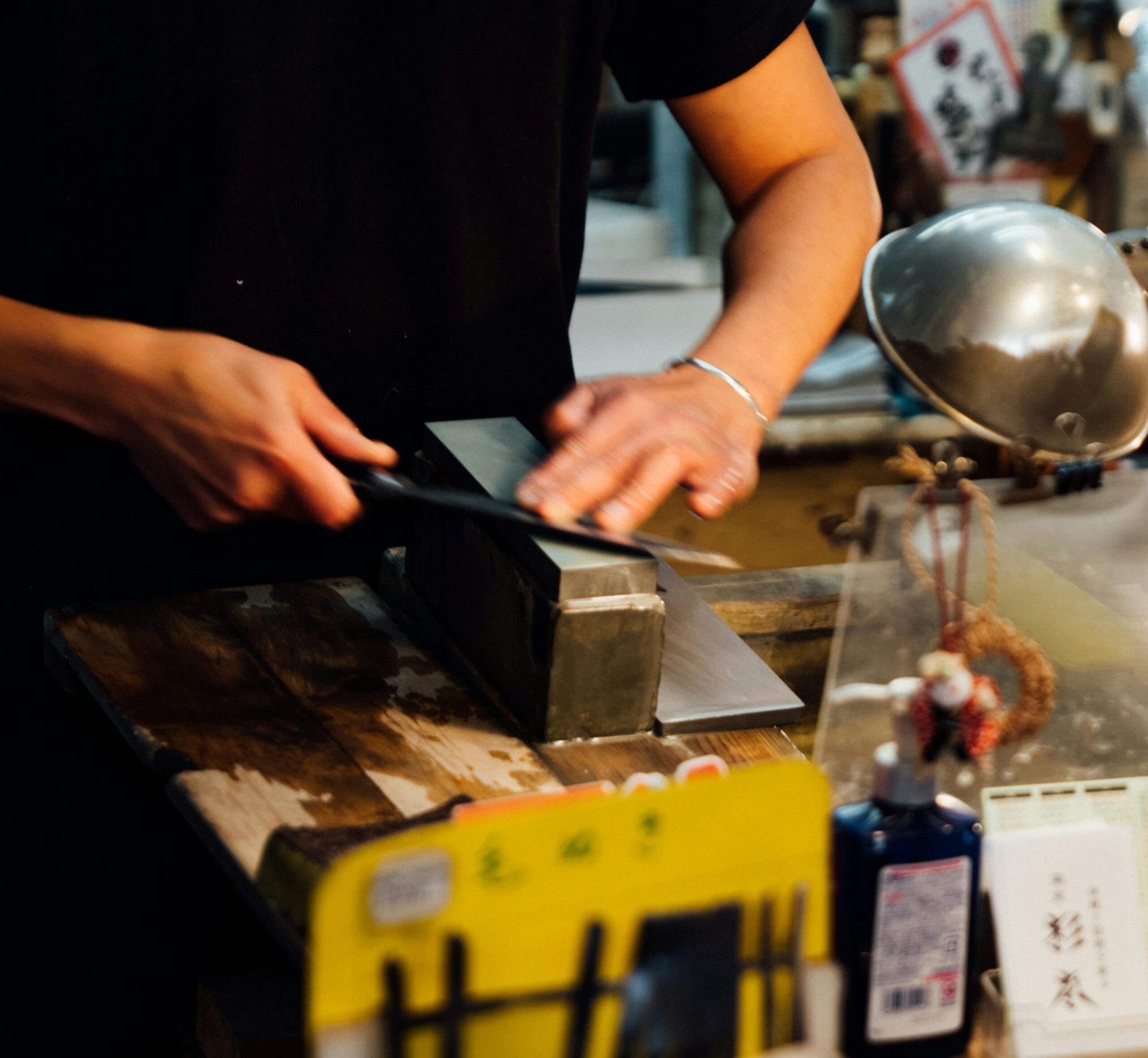
- How often? For home cooks: Sharpen every 2–3 months. For commercial use (restaurants, cafes): Sharpen every 1–2 weeks.
- Use the right tools: A whetstone (best for precision), honing steel (for quick touch-ups), or electric sharpener (great for beginners).
- Follow a guide: If you’re new to sharpening, use a “how to sharpen kitchen knives with a whetstone for beginners” tutorial to avoid damaging the blade.
Frequently Asked Questions
Are stainless steel knives dishwasher safe?
While stainless steel is more corrosion-resistant than carbon steel, it’s still not recommended for dishwashers. The harsh chemicals, high heat, and physical contact can dull even high-quality stainless steel knives and cause handle damage.
How long does it take for dishwasher to dull knives?
Knives can lose noticeable sharpness after just one dishwasher cycle. However, significant dulling typically occurs after 10-20 wash cycles, depending on the knife quality and dishwasher settings.
Can you put serrated knives in the dishwasher?
Serrated knives are even more susceptible to dishwasher damage because the pointed teeth can chip or break off. The irregular edge geometry makes them harder to resharpen if damaged.
If I Accidentally Put Knives in the Dishwasher, How Can I Fix Dullness?
First, dry the knife thoroughly to prevent rust. Then:
- Use a honing steel to realign the blade’s edge (this works for minor dullness).
- For more severe dullness, use a whetstone to sharpen the blade (follow a “how to fix a dull knife after dishwasher” guide if you’re new).
Pro Tip: If the blade has rust spots, gently scrub them with a paste of baking soda and water—never use steel wool (it will scratch the blade).
Buy Wholesale Knives and Start Scaling up with Us Today
Contact us and connect with a sales rep to get a free quote.
Conclusion: Invest in Quality, Maintain with Care
Understanding that dishwashers dull knives is just the beginning of proper knife care. Whether you’re using budget-friendly kitchen knives or premium Japanese steel, hand washing and proper maintenance will extend blade life, maintain sharpness, and ensure kitchen safety.
The few extra minutes spent hand washing your knives will save money on replacements and professional sharpening while keeping your blades performing at their best. Remember, a sharp knife is not only more effective but also safer to use.
For businesses looking to offer their customers the highest quality knives that deserve proper care, sourcing from experienced manufacturers who understand blade geometry, steel quality, and construction techniques is essential.
If you’re a wholesaler, retailer, or brand owner looking for high-quality knives manufactured in China, Leeknives offers comprehensive OEM, wholesale, and private label services. Our experienced team understands what makes knives worth hand washing – superior steel, precise geometry, and expert craftsmanship.
Request Your Free Quote Today and discover how we can help you offer knives your customers will want to care for properly.
